RCC Pathway Redesign: Learnings from introducing
adjuvant therapy to the RCC pathway
RCC Pathway Redesign
Prescribing Information (Great Britain) & Prescribing Information (Northern Ireland) [External links]
Case studies outlining pathway redesign can be a valuable resource for NHS healthcare professionals, to support in improving RCC patient pathways and healthcare delivery in the adjuvant setting, within current capacity and workforce constraints.
These four case studies provide insights into the process of redesigning healthcare pathways, highlighting the solutions implemented by centres to incorporate adjuvant RCC therapy in the renal cancer pathway. The case studies have been developed from discussions with key individuals in each of the centres, who shared their experiences, how they redesigned pathways and what learnings they would share to those attempting the same process.

Four different types of centres were chosen to reflect the current variety of centres in the UK, from larger tertiary referral centres to district general hospitals.
These case studies were developed alongside healthcare professionals involved in the renal cancer service. This project was funded by MSD. The Healthcare Professionals involved received honoraria for their input.
Summary
This summary document extracts the key findings and common themes across the four centres in the case studies. The document highlights the importance of collaborative work across the multidisciplinary team (MDT) and departments, with colleagues from urology, oncology, radiology, nursing, pharmacy and others working together to deliver sustainable change.
By learning from practical examples, identifying areas for local improvement and collaborating with others to enhance patient care, these case studies aim to support healthcare professionals to work towards improving healthcare delivery and patient outcomes, within current capacity and workforce constraints.
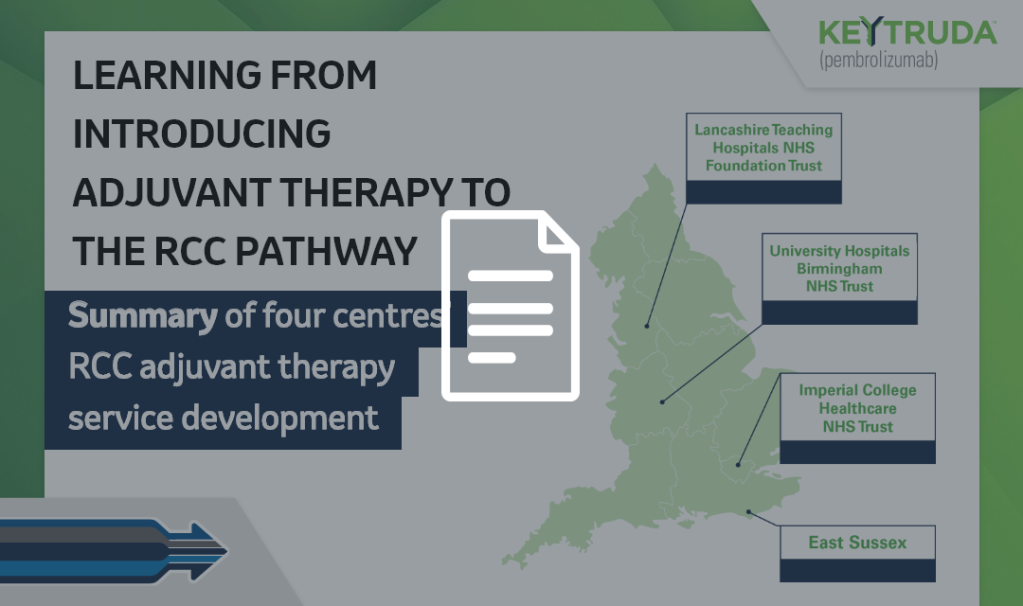
PDF, 843 KB
- East Sussex
-
University Hospitals
Birmingham
NHS Trust -
The Imperial College
Healthcare
NHS Trust -
Lancashire Teaching
Hospitals NHS
Foundation Trust
The East Sussex Renal Cancer Service
Key takeaway within this case study:
- Organise clinic timings to provide the most efficient pathway for patients and clinics
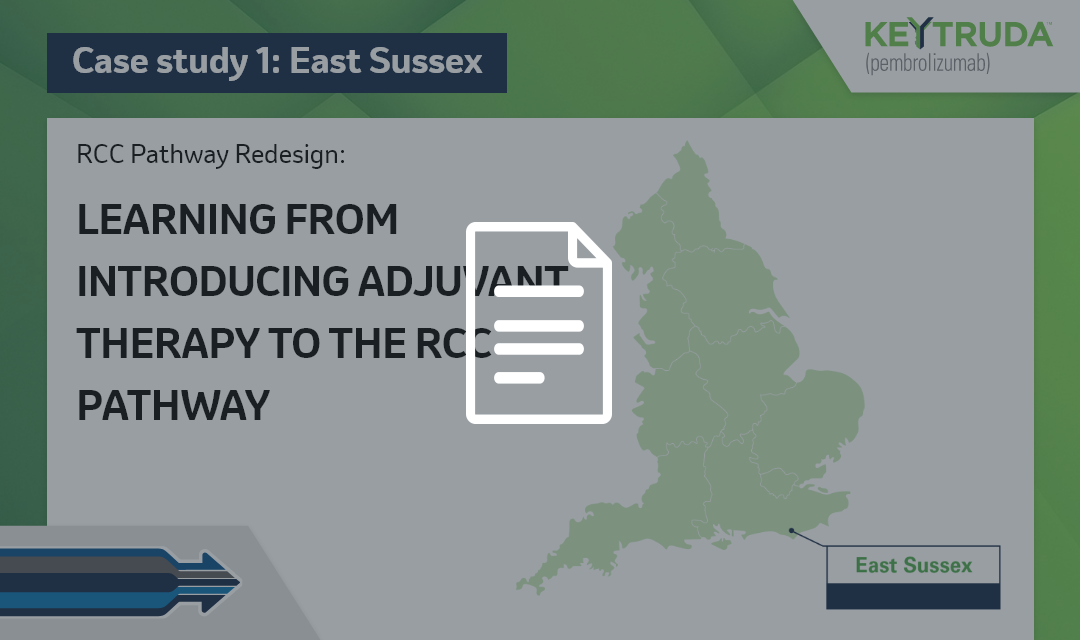
PDF, 729 KB
This is an MSD promotional resource for UK healthcare professionals only. This case study was developed alongside healthcare professionals involved in the renal cancer service. It has been funded by MSD. Healthcare professionals involved received honorarium. The contents of the case studies reflect these healthcare professionals’ opinion and are not necessarily reflective of those of their Trust.
The University Hospitals Birmingham NHS Foundation Trust Renal Cancer Service
Key takeaway within this case study:
- Involve the pharmacy team and MDT early in the pathway development
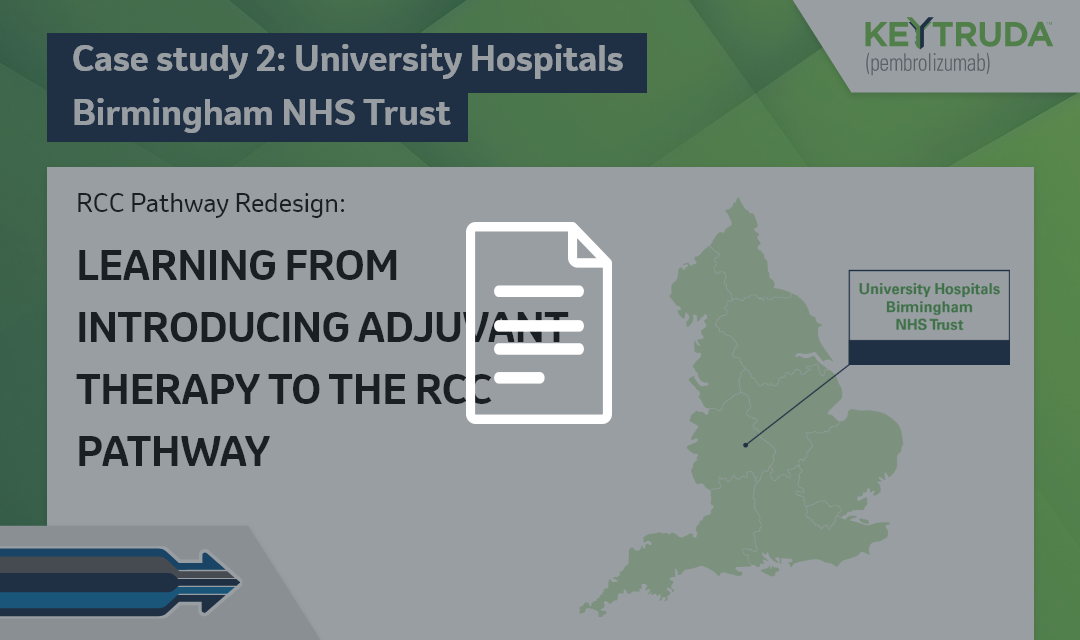
PDF, 714 KB
This is an MSD promotional resource for UK healthcare professionals only. This case study was developed alongside healthcare professionals involved in the renal cancer service. It has been funded by MSD. Healthcare professionals involved received honorarium. The contents of the case studies reflect these healthcare professionals’ opinion and are not necessarily reflective of those of their Trust.
The Imperial College Healthcare NHS Trust Renal Cancer Service
Key takeaway within this case study:
- Discuss ways to streamline the patient pathway within the MDT so that eligible patients can receive treatment within the 12 week period
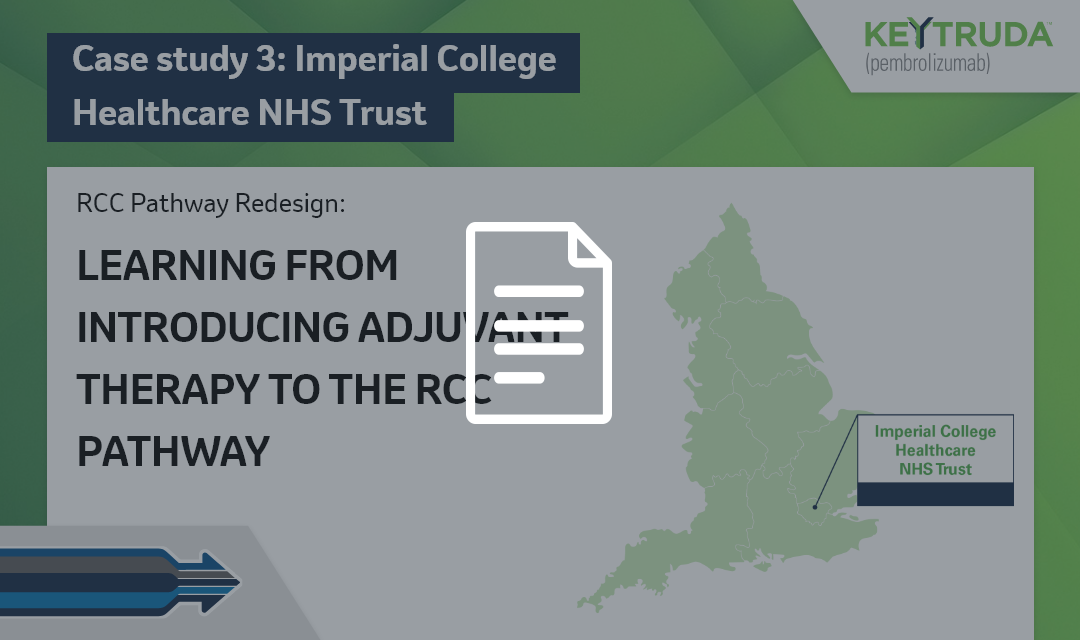
PDF, 685 KB
This is an MSD promotional resource for UK healthcare professionals only. This case study was developed alongside healthcare professionals involved in the renal cancer service. It has been funded by MSD. Healthcare professionals involved received honorarium. The contents of the case studies reflect these healthcare professionals’ opinion and are not necessarily reflective of those of their Trust.
Lancashire Teaching Hospitals NHS Foundation Trust
Key takeaway within this case study:
- Consider a patient experience coordinator who may be able to answer patient queries which do not require a specialist nurse
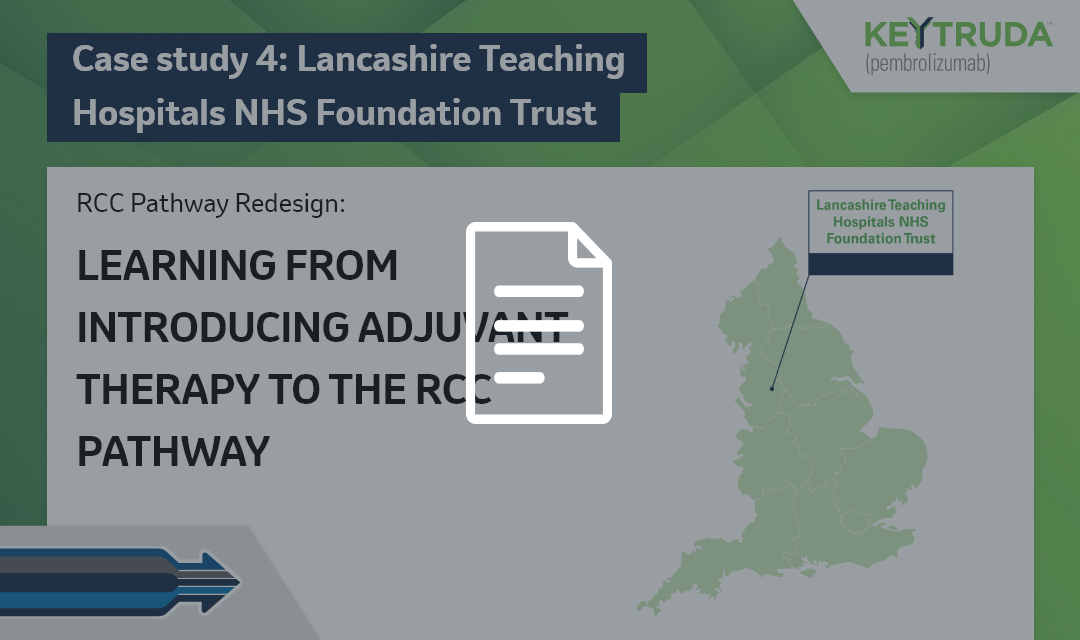
PDF, 688 KB
This is an MSD promotional resource for UK healthcare professionals only. This case study was developed alongside healthcare professionals involved in the renal cancer service. It has been funded by MSD. Healthcare professionals involved received honorarium. The contents of the case studies reflect these healthcare professionals’ opinion and are not necessarily reflective of those of their Trust.
KEYTRUDA® (pembrolizumab) as monotherapy is indicated for the adjuvant treatment of adults with renal cell carcinoma at increased risk of recurrence following nephrectomy or following nephrectomy and resection of metastatic lesions (for selection criteria, please see Summary of Product Characteristics).1
Please refer to the Summary of Product Characteristics and risk minimisation materials before making prescribing decisions.
Reference
- KEYTRUDA Summary of Product Characteristics.
Supporting documentation
Prescribing Information and SmPC (Great Britain) & Prescribing Information and SmPC (Northern Ireland)
By clicking the links above you will leave the MSD Connect website and be taken to the emc PI portal website
